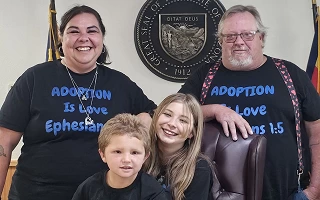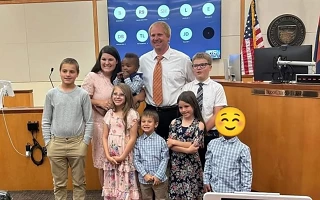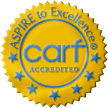For almost 20 years, Doug Hoskins has fostered boys as a single dad. He also has experience with therapeutic foster care, which serves youth who must be medically approved for placement and require more help with mental, emotional and behavioral health needs.
For almost 20 years, Doug Hoskins has fostered boys as a single dad. He also has experience with therapeutic foster care, which serves youth who must be medically approved for placement and require more help with mental, emotional and behavioral health needs.
Doug works as a Licensing and Adoption Specialist with Catholic Charities, where he uses his experience to advocate for foster children and families. Below are some of his pieces of advice and lessons learned for prospective and current foster parents.
Be Available and Attuned
Being available and attuned is an essential quality of a foster parent. This means paying attention to detail, taking note of a child's behaviors and body language, and helping them find the words to express their emotions.
Part of staying available and attuned means being consistent. Disruptions may happen such as the child leaving your home. Regardless, you must still show that love and support and stay in touch when you can.
It's also important to realize that many of these children have been in situations where they couldn't trust adults. Being upfront and honest with them makes a world of difference.
Learn Your Triggers and When to Let Go
Just like fostering requires paying attention to your child's behaviors, it also requires taking a closer look at yourself and your own behaviors. No matter how strong your relationship is with your child, there will be moments when you feel triggered.
Learn what your triggers are. They may be things you didn't even realize were affecting you. Sometimes it's better to step away in response to a behavior than to react and respond out of emotion.
Another way to stay grounded is to focus on the good things the child is doing and not the bad. “Learning to figure out what to let go [is] always a continual process for me,” says Doug.
Not Every Placement Ends in Adoption
As a foster parent, don't feel pressured to adopt every child that comes into your home. A child may not be a good long-term fit for your family, and that's okay. It's better to accept this than to go further into something that won't work out.
Don't Do It All Alone
Lastly, don't be afraid to ask for support from other foster families or your licensing agency. Venting to someone who understands can be a great tool in managing stress and solving challenges.
“It's so much easier to be able to talk about what's going on with people who are going through it or have been through it. Your family and your friends may not exactly understand what's going on,” says Doug.
Are you ready to take the next step toward becoming a foster parent? Check out our Foster Care and Adoption page to see if fostering is right for you. You can also find out more by registering for one of our Foster Care and Adoption orientations.








